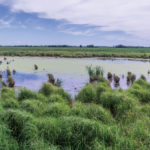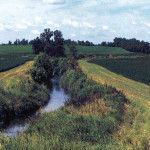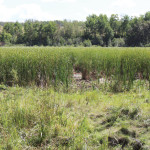Brenda and Cliff Seward had known for a long while a certain piece of farmland wasn’t very productive — but they kept on cultivating it anyways. This was about 40 acres, once slough, and drained more than 30 years ago, explains Brenda who farms southwest of Morden in the Kaleida area. Read more: A watershed








